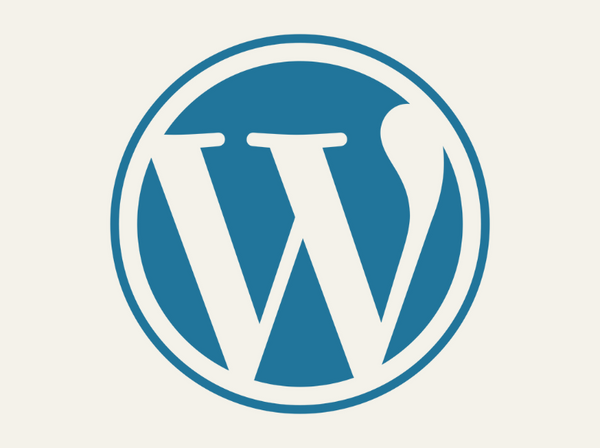I’m going to start this with a plug - if you’re not getting your tech news from 404 Media, you’re missing out. The new media landscape has produced some real gems in the last couple of years, but this is one of the shiniest (insert Firefly “shiny” gif). Between their podcast, their blogs and some further googling (links to follow), I’ve managed to get as close to a handle on things as I think you can reasonably get without being directly involved in the soap opera unfolding between WP Engine and Automattic.
To begin with - I think there are three things to get out of the way.
1. What’s the beef (i)?
This can be summed up nicely from a second blog (again from 404 Media’s Sam Cole) who writes:
“Since last month, Mullenweg has been publicly accusing WP Engine of misusing the WordPress brand and not contributing enough to the open-source community. WP Engine sent him a cease and desist, and he and his company, Automattic, sent one back. He’s banned WP Engine from using WordPress’ resources, and as of today, some contributors are reporting being kicked out of the community Slack they use for WordPress open-source projects."
This is a decent introduction to the drama, which ostensibly kicked off after WordPress (and I say this in an entirely colloquial and non-legally actionable way) nicked the Advanced Custom Fields plugin out from under its developers (WP Engine); but we’ll come back to it once we cover the next piece of the puzzle…
2. What’s the difference between WordPress and WP Engine?
To confuse matters further, there are actually three entities here, there is WordPress.org and the WordPress Foundation, an open source platform home to around 40% of the top 1Mn websites online; there is WordPress.com, owned by Automattic (who also operate the WooCommerce plug-in that powers the majority of ecommerce functionality on both WordPress.org and .com sites) founded by Matt Mullenweg, one of the original contributors to WordPress.org; and there is WP Engine, a hosting solution for WordPress sites which hosts about 1.4% of all sites.
While there is clear overlap between all three entities, the main tie has been their ongoing contributions to the open source WordPress codebase. Here’s a bit of a potted history:
- Released in May of 2003, WordPress is a forked project directly descendant from b2/cafelog and was founded by developers Mike Little and Matt Mullenweg.
- Automattic Inc. was founded as a freemium service by Matt Mullenweg which also offered managed hosting for its wordpress.com sites. Automattic also continued to make substantial contributions to the open source WordPress community and would later purchase WooCommerce in 2015.
- WP Engine is a US hosting company founded in 2010 that uses the WordPress open source codebase and has also made ongoing contributions to that code open source project, including the development of the ACF (Advanced Custom Fields) plug-in.
So, in effect, we have an open source codebase, written in PHP, we have a freemium service providing websites and managed hosting using that codebase, and a separate hosting company.
3. What’s the beef (ii)?
Following the decision by WordPress founder Matt Mullenweg to demand payment from WP Engine for what it says is use of its trademark (the WP, he states in a blog, was enough to confuse his own mother as to the affiliation with WordPress - family dinners must be hugely entertaining). This led to Mullenweg referring to WP Engine as a ‘cancer to WordPress’ and escalated when WordPress took ownership of WP Engine developed ACF plugin, forking it and naming the ongoing plugin Secure Custom Fields (which is delightfully petty) for a perceived breach of their terms of service.
Some of the finer points are included in the following summary from the summary on Wikipedia’s WP Engine entry:
During the week preceding September 22, 2024, Matt Mullenweg—founder of WordPress.com—began speaking negatively about rival WP Engine. Mullenweg gave a speech at WordCamp US 2024 that argued that WP Engine had made meager contributions to WordPress compared to Automattic, criticized WP Engine's significant ties to private equity, and called for a boycott, sparking internet controversy.[29] In response, WP Engine issued a cease and desist against what it characterized as defamation and extortion, attributing his attacks to WP Engine's refusal to pay Automattic "a significant percentage of its gross revenues – tens of millions of dollars in fact – on an ongoing basis" for what it claimed were necessary trademark licensing fees (later clarified as 8% of all revenue, payable in gross or in salaries for its own employees working under WordPress.org's direction, combined with a clause that would've prohibited forking[30]) for the "WordPress" name.[31] Automattic responded by sending its own cease and desist the next day, citing the trademark issue.[32] On October 2, 2024, WP Engine sued Automattic and Mullenweg for extortion and abuse of power, which the defendants denied.[30]”
What does this mean for brands using WordPress.org and WooCommerce?
The disagreement here does not make a huge difference to the WordPresss.org project as a whole, so far as I can see, though what it does do is sour what has been one of the internet’s foundational open source projects. While the initial impact may be minimal, we can see from the 8% of Automattic’s staff (159 people) which resigned in the wake of Mullenweg’s actions over the last month, is that none of this has been particularly good for morale or particularly welcomed by the community as a whole.
This is summed up in the following from the above 404 Media story:
“Regarding escalations, to me, the most upsetting thing has been the way he's treating current and former employees and WP community members,” one former employee who recently left the company after several years told me. “He clearly has no clue what people care about or how the community has contributed to the success of WordPress. It very clearly shows how out of touch he is with everyday reality. One, sharing pictures of him being on safari while all this shit is going down, as if people would think that was cool. Only rich tech bros would think that.”
It is the lasting impact on the overall WordPress project that gives me the most pause - it has been the open nature of the platform that has made developing with it and for it one of the most cost effective ways to maintain a secure online business. That effectively ends with this confrontation - and, for a lot of people, with the takeover of ACF, which has been an incredibly useful plugin for people looking to add custom functionality (I’ve used it myself to hook in some schema stuff in the past).
While it remains to be seen what the long-term impact is on the WordPress project, my feeling is that - unless resolved quickly, this could lead to a chilling effect on community input and a longer term degradation of the codebase, which could end up causing security issues, issues with support for apps that developers no longer feel comfortable devoting themselves to building when they can be taken away with no prior warning.
It’s still a ‘wait and see’ moment for me - I wouldn’t panic as a brand using WordPress and/or WooCommerce - but I would keep my eye on how this dispute unfolds very closely over the coming months and have an exit plan in place should the legal dispute begin to escalate.


